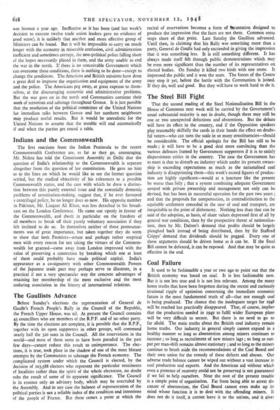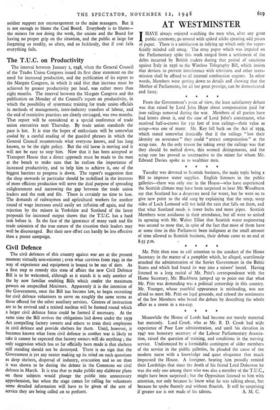Coal Failure
It used to be fashionable a year or two ago to point out that the British economy was based on coal. It is less fashionable now. But it is not less true and it is not less relevant. Among the many home truths that have been forgotten during the recent and curiously irrational ripple of optimism concerning the immediate economic future is the most fundamental truth of all—that not enough coal is being produced. The chance that the inadequate target for 5948 will be reached has practically disappeared. That, of course, implies that the production needed in 1949 to fulfil wider European plans will be very difficult to secure. But there is no need to go so far afield. The main truths about the British coal industry remain home truths. Our industry in general simply cannot expand in a healthy manner so long as absenteeism among miners continues to increase ; so long as recruitment of new miners lags ; so long as out- put per man-shift remains almost stationary ; and so long as the miners continue to brush aside the recommendations of the Coal Board and their own union for the remedy of these defects and abuses. Our adverse trade balance cannot be wiped out without a vast increase in coal production and exports. And the American 'aid without which even a pretence of recovery could not be preserved is not guaranteed if we fail to help ourselves. Near the root of the present trouble is a simple point of organisation. Far from being able to arrest the cancer of absenteeism, the Coal Board cannot even make up its mind whose function it is to deal• with the offending miners. It does not do it itself, it cannot leave it to the unions, and it gives
neither support nor encouragement to the mine managers. But it is not enough to blame the Coal Board. Everybody is to blame— the miners for not doing the work, the unions and the Board for having no proper grip on the situation, and the public at large for forgetting so readily, so often, and so fecklessly, that if coal fails everything fails.



































 Previous page
Previous page